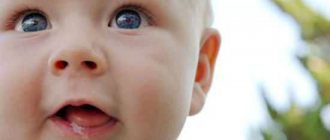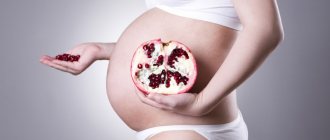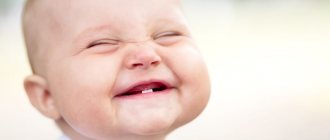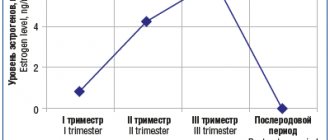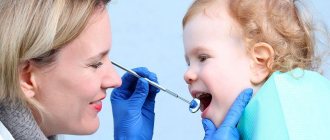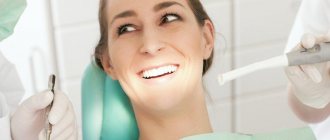Oral sex is a great way to give your loved one pleasure. A girl can please her lover with a wonderful blowjob. Some couples face a delicate problem that arises immediately after oral sex: is it normal for a girl to kiss her boyfriend after a blowjob?
Some men feel disgusted, while others see nothing wrong with it. The first option can be very confusing for your partner, so this issue is worth examining in more detail.
Why do you need oral sex?
Some couples find it very difficult to engage in oral sex. There are a number of reasons for this: embarrassment of one’s body and the body of a partner, disdain to touch the genitals with one’s lips and lack of confidence in one’s abilities.
Despite this, oral sex is a great way to satisfy a partner when it is not possible to do it naturally or simply add color to the overall process. Blowjobs can be great foreplay and help get a man really excited.
But the girl will also enjoy it after a blowjob if she masters the correct technique.
Causes of fist and finger sucking
This may indicate hunger or a desire to drink.
This process may also be due to the onset of teething. In this case, the baby feels discomfort; the gums may be sensitive, irritated, itchy, etc. If the problem is in the teeth, then the fist can be replaced with a special teether, which can be chewed without problems all day long. They often have special tubercles and pimples, as well as a cooling effect. They are pleasant to chew on and can be wiped with a damp cleaning cloth and used on a walk or on the road.
Infants often suck their fingers after or before feeding, thus indicating that they have not yet “pumped” or are simply hungry. After all, the baby eats the main portion of milk in the first 5-10 minutes, and the rest of the time they suck just “for pleasure.” If your baby puts his fingers in his mouth after breastfeeding, you may be holding him less at the breast than he needs.
At an older age, a child may suck fingers if he lacks parental love and affection.
Sometimes thumb sucking becomes a sedative - this is how the baby instinctively relieves excessive excitement or calms himself before bed.
There is no point in weaning children off sucking. When the need for this disappears, the instinct fades away - the baby himself will stop. If you do not allow a child to do what the body requires, this may in the future result in uncertainty, complexes and other unpleasant consequences. Realization of instincts, among other things, helps to fully enjoy childhood, gain a sense of security and trust. To prevent excessive saliva from causing discomfort, you can carry a pack of wet wipes with you and wipe your baby as needed.
Reason to get closer4
Oral sex is an expression of the most passionate feelings. What man wouldn't love it when, during a normal day, a girl suddenly pounces on him, sticks her hand down his pants and starts acting? Good sex brings two people closer not only physically, but also emotionally.
Feeling the initiative and enthusiasm on the part of the girl, the guy will definitely be imbued with real passion and gratitude for her. The closer people are to each other, the more different experiments they allow themselves in bed. A constrained couple who cannot fully open up during sex threatens to lose all the spark and forget what bright orgasms are.
Best blowjob for a man5
A girl who has decided to give a blowjob to her beloved man for the first time may be worried because of her inexperience. Having watched enough porn films where actresses bring their man to orgasm in five minutes, women in real life are afraid of disappointing their partners, believing that this is exactly what they expect from them.
In fact, men themselves do not need deep throat blowjobs. It doesn’t cost a girl anything to please a man if she wants it, just follow a few basic rules.
The phase of slow (deep) sleep and drooling.
Sleep has several phases of more or less equal duration. The main phase is known as rapid eye movement (REM). During the REM phase, the body falls into deep sleep, which is essential for the body.
During this stage, some neurotransmitters are blocked to disable the muscle movements that would cause us to wake up during a nightmare. Therefore, during the deep sleep phase this drooling occurs.
Do you drool while you sleep? You are incredibly lucky - and here's why Let everyone be jealous!
According to Dr. Jorge Abel Salinas, “Brain functions are shut down for proper rest and recovery. For a while, a person even stops swallowing saliva, and then begins to eliminate saliva through the famous drooling.”
Therefore, when you are well rested, your body relaxes completely and this causes your mouth to open and drool. This means that all your sleep processes are happening normally.
MORE ARTICLES ON THE TOPIC: HOW TO AVOID SENIEL INITIATION. GREAT ARTICLE
Everyone is unique6
You shouldn’t lump all guys with the same brush and think that they have a certain sex symbol whose blowjob they consider ideal and “try it on” for every real partner. All men have different feelings and perceptions, as well as sexual preferences, so a girl should experiment with blowjobs and strive to find the “tactics” that will give a man the most pleasure.
Touch not only the penis, but also the scrotum, use your lips, tongue, suck and lick the genitals - try everything that comes to mind, just be careful with your teeth. Although, some ladies manage to bite the head of the penis and give great pleasure to their partners.
Causes of excessive drooling in cats
Factors influencing saliva secretion are divided into 3 groups: physiological , psychological , pathological .
The first two do not require medical attention. The third includes diseases and injuries that are diagnosed in a clinic and treated under the supervision of a doctor.
Physiological
Salivation increases due to external stimuli:
- Reaction to food . The sight and smell of food increases the secretion of gastric juice and saliva. When an animal gets used to eating at the same time, they are excreted during feeding hours and without food. Hypersalivation is noticed after unusual dishes.
- Hairballs in the gastrointestinal tract . A cat swallows hair when licking its fur coat. Salivation intensifies when they enter the esophagus due to irritation of the walls. In the stomach, the hair combines into a lump; in order to regurgitate it, additional liquid is needed.
- Medicines . Drooling increases due to the bitter, sour taste of the tablets, when licking the fur after treatment with flea drops. When an overdose of external preparations against ectoparasites occurs, the cat produces foam from its mouth, this is indicated in the instructions.
- Increased humidity and air temperature . In the heat, cats stick out their tongues and saliva drips from it. This way they restore heat exchange and escape the stuffiness.
- Pieces of food between teeth . A foreign body in the mouth irritates the mucous membranes. In an attempt to get rid of it, the cat rubs its muzzle with its paw and saliva flows profusely. In this case, the mouth is examined and the piece is carefully removed with tweezers.
Salivation returns to normal 15 to 30 minutes after the irritant is eliminated.
Psychological
Saliva is produced during moments of nervous tension; provoking factors include:
- moving, changing the usual environment;
- the appearance of other animals in the apartment;
- contact with an unfamiliar dog;
- games with children;
- visiting a veterinary clinic, medical procedures;
- travel in transport.
Hypersalivation goes away when the cat calms down and returns to its usual conditions.
Pathological
When there are no apparent reasons for ptyalism, internal disorders are suspected; they are accompanied by other unpleasant symptoms:
Pulmonary edema
How to treat a cat with diarrhea and vomiting
Dandruff
- Viral infections . Saliva is produced profusely when infected with rabies. The animal's coordination is impaired, swallowing muscles fail, convulsions occur, behavior changes - the cat hides or becomes aggressive, is afraid of light and water. With calcivirosis, the virus affects the mucous membranes and worsens health. In addition to saliva, the cat produces mucus from the nose, tears flow, and diarrhea occurs. Ulcers spread on the tongue and palate. Body temperature rises, which provokes thirst and nausea. The animal looks depressed and loses its appetite.
- Food intolerance . The reaction occurs when the food is changed, in addition to profuse salivation, the cat begins to have diarrhea and vomiting.
- Foreign body . Swallowed objects and bones injure the esophagus, stomach, and throat. The pet refuses to eat, constantly drinks, tilts its head unnaturally, coughs, and rubs its cheek on objects.
- Poisoning . Nausea with excessive saliva production is caused by spoiled food, household chemicals and cosmetics, poisonous plants and insects. With severe intoxication, vomiting and diarrhea with blood begins.
- Inflammation of the mucous membrane of the mouth, dental diseases . Hypersalivation occurs in response to the accumulation of bacteria. With stomatitis, ulcers and abscesses are noticed; with gingivitis, the gums turn red and bleed. The cat eats worse and chews food slowly. A repulsive odor appears from the mouth.
- Chemical burn . Injury occurs when acid or alkali accidentally gets on the mucous membranes after licking off iodine. The visible surfaces of the mouth swell, turn red, the tongue becomes enlarged, areas with a whitish coating and blisters appear. Breathing and heart rate increase.
- Diseases of the abdominal organs . Constant drooling and the smell of rot from the mouth accompany gastritis, ulcers, colitis, pathologies of the spleen and gall bladder. The cat refuses to eat, which leads to exhaustion.
- Other diseases . Hypersalivation sometimes begins with pyelonephritis, liver pathologies, malignant tumors, diabetes mellitus, and helminthiasis.
If the listed symptoms are noticed against the background of drooling, the cat is taken to the clinic.
Good blowjob technique7
- Use your hands and fingers to not only hold the cock, but also to add more to the blowjob. Close your thumb and index finger around the head of the penis and move the “ring” along the entire length of the penis while caressing it with your tongue. You can squeeze your fingers and stimulate the penis in any way.
- Touch your penis with your fingertips. The pads are a very soft and delicate part of the fingers. Light touches of the fingertips on the sensitive head can greatly excite a man and help him feel the process better.
- Do not forget that the penis should not be dry. During a blowjob, it is advisable to try to wet your partner’s penis as much as possible so that the man does not feel discomfort.
- Try teasing your partner before giving a blowjob. Move your fingers around the head, lightly touch the penis, at the beginning of the blowjob itself you can lightly touch it with your lips. Such teases can really turn a man on and provide a vivid orgasm. A girl can make sure that a guy is at his limit when a small drop of ejaculate appears on the head of his penis - a small amount of sperm.
- Do not overdo it with caresses and try to understand when the man is about to cum. Although the orgasm from masturbation and oral sex is pleasant, the partner will receive much more pleasant sensations when an excellent blowjob continues with enchanting sex.
- During oral sex, if possible, try to say something dirty, briefly sticking your penis out and caressing it with your hands. Many girls think that blowjob is humiliation, and vulgar words about what a wonderful penis their partner has are considered something wild.
- Let your partner take the initiative. You can directly ask the guy exactly how he wants the girl to take his penis. The partner can take the girl’s head and, using the movements of his hands and hips, independently set the desired rhythm, the main thing is not to overdo it, otherwise a blowjob can turn into real torture for the girl.
Main diseases and conditions causing pathological hypersalivation
Diseases that can cause hypersalivation.
Trichobezoar
This is a ball of ingested hair that forms in a pet's fat cat. There is thicker content and less active peristalsis. All cats swallow hairs when licking and most often they come out naturally, but sometimes such formations are formed from them. At the same time, in addition to increased salivation, other symptoms will be present: appetite decreases and water consumption increases, the pet’s stomach swells and when palpated, bloating in the large intestine is easily detected, long-term constipation occurs with a tendency to become chronic. A hairball can lead to complete blockage of the intestinal lumen, which in turn can cause low intestinal obstruction.
This condition requires urgent surgery. To identify a trichobezoar, research methods such as ultrasound and X-ray of the abdominal cavity are used.
Poisoning
This is a rare but possible condition in cats. The most common causes are: poisonous indoor plants, medications, mercury, household chemicals, expired food, rat bait, etc. When toxic substances enter the digestive tract, the body activates the elimination system, as it tries to get rid of toxins as quickly as possible. This is accompanied not only by increased salivation, but also by vomiting, nausea, and diarrhea. The pet refuses to eat, but at the same time begins to drink a lot, breathing becomes frequent and shallow. With a high concentration of poisons in the blood, general symptoms of intoxication develop, the functioning of the central nervous system, cardiovascular and respiratory systems is disrupted. This condition requires emergency veterinary care as it can be life-threatening.
Oral diseases
They can provoke increased salivation, among the most likely are:
- Mucoceles or cysts in the salivary glands. With this disease, the lumen of the salivary ducts is blocked, which leads to excessive accumulation of saliva in the organ and the formation of one or more cysts. An additional symptom is swelling and tenderness in the gland area.
- Gingivitis is an inflammatory disease of the gums. They become red, swollen and painful. In advanced stages, the cat may lose teeth.
- Abscess in the pulp of a tooth. This is a purulent process; it can be suspected not only by hypersalivation, but also by examining the mouth. Teeth have carious cavities, chips, cracks and other enamel damage.
Infectious diseases
Sometimes there are cases when drooling is caused by infectious diseases that are dangerous to the cat's health if left untreated. These include:
- Viral leukemia (feline leukemia). This disease develops as a result of a virus entering the body that affects white blood cells (leukocytes), which are responsible for immunity. Main symptoms: chronic stomatitis and gingivitis, leading to tooth loss. A cure for this virus has not yet been developed; only symptomatic therapy is carried out, aimed at maintaining the general well-being of the pet. The lifespan of a cat with leukemia is significantly reduced.
- Rabies is an extremely dangerous and contagious disease that affects not only animals, but also people. It is characterized by an increased flow of viscous saliva with copious amounts of foam from the mouth, fear of water and the sound of transfusions, excessive aggressiveness and inappropriate behavior, and convulsions are possible. The disease is incurable at the present time in the development of medicine. In this connection, the cat is euthanized and the corpse is burned. This is done to prevent infection of people and the spread of the disease.
Allergic reactions
Not only people, but also cats have allergies. It can be food, medicinal, etc. For example, with a sudden change from the usual food to another. If excessive drooling does not go away after 2-3 days, and is accompanied by vomiting, diarrhea or constipation, it is better to return to your previous diet.
Diseases of the digestive tract and liver
In addition to increased salivation, such conditions and diseases are accompanied by an unpleasant, putrid odor from the cat’s mouth, and problems with bowel movements (diarrhea, constipation). With liver problems, both congenital and acquired, the process of neutralizing toxins entering the organ through the bloodstream is disrupted, which also provokes an increase in saliva volumes. At the same time, the pet’s nose becomes dry and warm, the tongue is coated with a thick brown coating. With congenital pathology, this condition develops in kittens in the first year of life, and with acquired pathology, this condition develops in adulthood.
Oncology
The development of tumors in the gastrointestinal tract can provoke increased salivation. This disease is difficult to diagnose due to the long absence of clear symptoms, and owners often turn to the veterinarian in advanced cases when the cat can no longer be helped. Old animals are most susceptible to this pathology, but it occurs at a young age.
Psychological reasons
There may be several of them:
- Excessive love for the owner. When stroking with pleasure, the cat may drool, which is not a sign of pathology.
- Stress. When moving, a large crowd of strangers in the apartment, the appearance of new pets, etc., the animal may feel emotional discomfort, which will manifest itself in the form of drooling.


